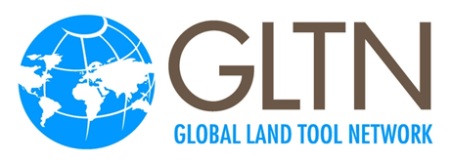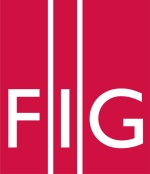News in 2013

|
Government of Netherlands Contributes US$20.4 Million
to Global Land Tool Network Programme
On 3 October 2013, the Dutch Minister for Foreign Trade
and Development Cooperation has signed an agreement with IFAD and UN-Habitat
for a contribution totalling US$20.4 million in support of Phase 2 of the
Global Land Tool Network (GLTN) programme particularly on scaling up and
advancing country-level engagement and promoting good land governance
through a comprehensive set of demand-driven and pro-poor land tools and
approaches.
“This financial boost from the Government of the
Netherlands is indeed a vote of confidence for the hard work you, as a GLTN
Partner, have invested into the GLTN agenda and will further allow the
Network to advance with you its work programme in GLTN Phase 2” said Dr. Clarissa Augustinus, Unit Leader: Land and Global Land Tool Network,
Urban Legislation, Land and Governance Branch at UN-Habitat. FIG is a GLTN
Partner from GLTN’s inception.
The commitment to the GLTN basket over a period of five
years (from 2013 to 2017), is part of the Government of the Netherlands’
on-going support to advancing food security, regional and global land
initiatives geared to promote the application of the Voluntary Guidelines of
the Responsible Governance of Tenure of Land, Fisheries and Forests.
GLTN Phase 2 (2012-2017)
GLTN’s first five years were full of momentum, successes
and lessons - all of which continue to be build upon. Since 2006, the Global
Land Tool Network has grown to include 60 partners comprised of land
professional bodies, civil society organizations, research and capacity
development institutions and bilateral and multilateral institutions. With
financial support of the Government of Norway and SIDA, and with the
multi-sector approach to technical collaboration, the Network has advanced
land tool development processes in key areas promoting pro-poor and gender
sensitive approaches that can be implemented at scale.
Phase 2, therefore, focuses on accelerating tool
development and implementation at country level, improving knowledge
management, supporting land policy reform and donor coordination,
strengthening capacity development processes. Based on the previous
experience of the network, these five thematic areas are critical entry
points in land sector reform. The total budget for GLTN phase 2 is 40
million USD, wherein the Netherlands have given an important financial
contribution of about 50% of the total funding requirement through IFAD. The
Network also recognizes and appreciates the continued partnerships and
financial contribution of The Government of Norway, Sweden’s SIDA, Cities
Alliance, African Union, African Union/UN Economic Commission for
Africa/Land Policy Initiative, African Development Bank, UN-Habitat and IFAD
in implementing targeted programs.
Continuum of Land Rights:
Reviewing the Concept and Investigating the evidence in selected sites in
Southern Africa.
Based on the premise that there is a growing acceptance
of the legitimacy of a range of land rights and alternative forms of secure
tenure, GLTN is undertaking an initiative to explore the evidence of the
continuum in practice. The first stage of the process was to research and
described the historical, conceptual and methodological underpinnings, as
well as the context and importance of the GLTN Continuum of Land Rights.
GLTN in close partnership with Urban LandMark, a GLTN
partner organization working in Southern Africa convened a consultation in
Johannesburg on October 9 – 11, 2013 amongst GLTN Secretariat, GLTN Partners
including FIG, international and local experts and implementers to review
the continuum of land rights and explore the continuum in practice.
This initiative will describe, understand and learn from
the paradigm shifts in practical terms with a view to consolidating and
extending the range of land rights and tenure security. An important element
of the initiative is to respond to GLTN’s approach to land tool capacity
development.
Modernising Land Agencies Budgetary Approach
GLTN in collaboration with the FIG together with Kadaster
International (The Netherlands) and Lantmäteriet (Sweden), key partners and
stakeholders have embarked on a process to develop a tool that can assist
policy makers and those responsible for land administration to adopt
appropriate technologies and methodologies that will provide and sustain
land administration services most efficiently, cost effectively and with
options most appropriately tailored for incorporating varying tenure types.
We recognize the challenges, as this tool will grapple with finding optimal
solutions to accommodate these new realities and multiple trends with a view
to making land agencies relevant to the time and the public they serve.
The tool will guide decision makers through appropriate
and incremental processes towards improving efficiencies and effectiveness
but without compromising the quality of services provided nor limiting
access to services, especially for the poor and vulnerable.
GLTN, FIG and its partners are convening a validation
workshop that aims to bring together global experiences of land
administration reform professionals to consider and review the tool as
proposed by the activity consultant. The two-day Validation Workshop will be
held in Gävle, Sweden on October 14 - 15, 2013 hosted by Lantmäteriet,
Sweden.
 
CheeHai TEO
October 2013
11 October 2013
|

